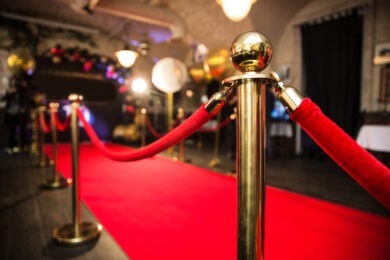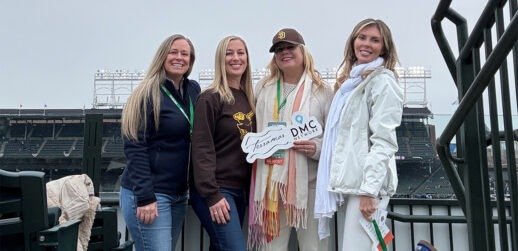Laughter matters a lot. It provides numerous benefits to our physical and mental health, and enhances our experience and the experience of those around us. Event planning is fundamentally about building connections and memories. So why not turn up the humor in your work? We’re outlining expert tactics for catching the bug.
Respond to Haters with Humor
The best way to respond to naysayers, especially on social media, is to laugh at yourself. If the situation doesn’t call for this type of humor, then make light of the situation, in general. Indicate that you understand, but aren’t crushed. Big brands do this on social media, and their responses often go viral.
Brands should avoid typos @allensolly #bangalore pic.twitter.com/Ef0drwusB2
— BG Mahesh (@bgmahesh) September 14, 2014
@bgmahesh We heard you! This has reached the highest level. The team has swung into action 😉 pic.twitter.com/FgvutMylA1
— Allen Solly (@allensolly) September 16, 2014
Audiences appreciate seeing that a human, not a bot, is behind the screen. So, demonstrating an ability to loosen up and not take yourself too seriously will make you much more likable.
Get Your Team Giggling
A good place to initiate comedy is within yourself. Laughter builds morale, trust, creativity and a positive perception of the workplace. Without compromising your authority, prioritize laughter in team-building activities.
Comedy is contagious. It will not only strengthen the team, but also encourage fun at your events. In fact, research by laughter expert Robert Provine found that social laughter occurs 30 times more frequently than solitary laughter. Get it started with games during a company happy hour. Or share humorous anecdotes with everyone to set the tone.
Poke Fun at Your Audience
There’s a very big distinction between singling out a person and poking fun at your audience. Spotify mastered the latter technique with its billboard campaign in the 2016 and 2017 holiday seasons. Posters included snippy headlines based around pieces of user data.
Netflix followed suit.
To the 53 people who've watched A Christmas Prince every day for the past 18 days: Who hurt you?
— Netflix (@netflix) December 11, 2017
How can this be applied to planners? Let’s say 62 percent of attendees reported in feedback that their favorite part of an event was the food. You could make a joke on Twitter such as, “The results are in. Turns out 62 percent of you came for free food.” The important takeaway is that teasing hits but avoid getting specific.
General Tips
Avoid any and all things offensive. When it comes to comedy and business, it’s always wise to veer on the side of caution. If a matter, word or joke is in question, just skip it altogether.
Keep it relevant. Jokes out of context are baffling and unnatural. Stay on or around the topic.
Bring up timely matters. Big things in the media are useful common ground. People love discussions about the latest things. Just steer clear of controversial opinions (cough, cough, politics).
Know your audience. This is potentially a huge help. Everyone has different experiences, but if you can pinpoint a topic your group can mutually relate to, then you’re guaranteed more laughs.
Get the timing right. Timing is everything. Stand-up comedy often circles back to the beginning of the routine. Likewise, carefully build tension for a punchline and know when to hit “send.”
Know the basics. Not everyone is born funny, but basic comedy can be taught. Begin by taking note of what works. Find patterns in positive responses. Plus, you might be surprised how much reading up on the basic techniques (exaggeration, puns, etc.) can help.
Present with confidence. Being at ease on stage seldom comes naturally. It will likely come from practice and being present.
Remember, it’s all fun and games. If you chuckle during your presentation, go with it. Let go of any burdens. Stress is the antithesis of a silly mindset.
If you hear crickets, let it go. No laughs mean it’s time to stop pushing a joke, no matter how much time was spent on it. Swiftly move on.




